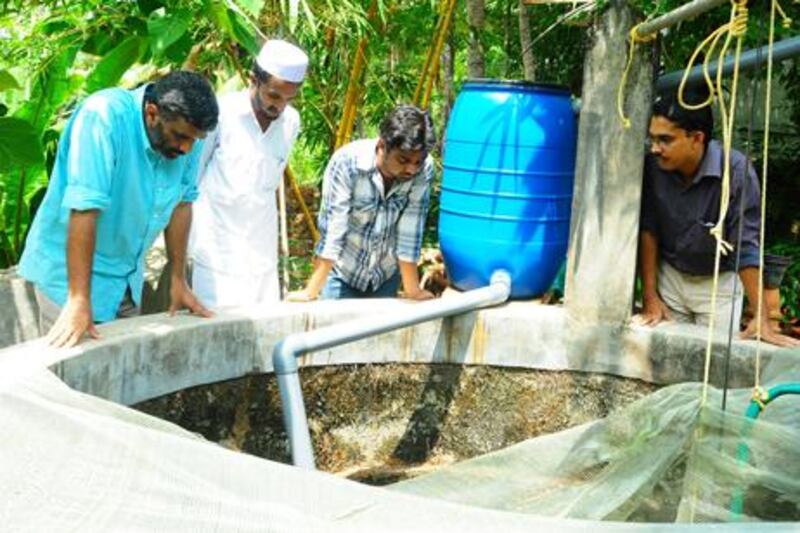DUBAI // For years Ismail Pothanthcry has been forced to truck in water or borrow it from others so he and his family can survive the dry months before the monsoon.
That is set to change thanks to the efforts of a doctor in Dubai who has overseen a rain water harvesting project in Kalpkanchery, a village in Kerala, southern India.
Dr Azad Moopen, the chairman of Dubai-based DM Healthcare group who hails from Kalpkanchery himself, set up a programme to collect and conserve water in 500 wells to help Mr Pothanthcry and 4,000 other villagers.
"Whenever I visit my village I remember the days when I was a child and there was plenty of water," said Dr Moopen, who moved to the UAE 25 years ago and heads a health care services group that provides care in India and the Middle East. "But now there is always a scarcity due to change in rainfall patterns and population increase."
Kalpkanchery, situated in Kerala's Malappuram area, is affected by acute water shortages every year - as are many districts in India. Until now, families have had to pay for water supplied by tankers for the period from January until the monsoon starts at the beginning of June. Each load of 2,000 litres costs 600 rupees (Dh37) and lasts about a week.
"What we have here is a simple model to charge the water sources that will bring relief to so many families," said Dr Moopen. "We hope to reach 40,000 people over the next one or two years."
Enthusiastic volunteers from Miles, a village empowerment group set up by Dr Moopen, worked with a government institute, the Centre for Water Resources Development and Management (CWRDM), to design a filtration project suitable for the village.
Now, the rain water that falls on the roofs of village homes is funnelled via pipes to a plastic tank where it is filtered through a mixture of elements including river sand and charcoal and then deposited into existing wells. A nylon net secured over the well prevents the entry of leaves and other foreign matter.
"There is a belief that Kerala is water rich because of its greenery but 70 per cent of the rain just flows into the ocean and there are many dry pockets with serious water issues," explained Mr Nandakumar, the regional director of CWRDM.
"Kalpkanchery's terrain and laterite soil give it a peculiar porous quality so the ground does not retain water for long and once the rains stop, the water level goes down drastically. The good thing is now we can treat and save this water."
The community's participation was critical to the programme. "Dr Moopen's idea involves large scale participation of local people and that makes this special. This can change people's lives. Within a year or two when this becomes a water secure village, others will learn from their example."
Since this year's monsoon began at the beginning of last month, groups of plumbers have been working daily in Kalpkanchery to set up the system.
"Wells are already filling; we believe it will reach 20 metres by mid-August and that will make families and their neighbours self-sufficient next year," said Irfan Habeeb, the director of the Miles programme.
"The news is spreading in the village and we get many calls daily. When people can filter and store water themselves, they no longer need to purchase tanker water that is often contaminated. Villagers realise it is not an alien concept and can be easily done."
The organisation sets up the system free for needy families and installs the equipment at a subsidised one-time cost of about 3,500 rupees (Dh214) for others.
Residents like Ismail Pothanthcry are hoping that the system will end the water scarcity that he, his wife, two teenage children and aged mother have had to endure for years. "It is good, clean water and it will help us overcome dangerous shortages," he said.
"We saw this work in a neighbour's house and installed it last month so we do not have health problems when there is no water. For years we borrowed water from others, now this can all change."







